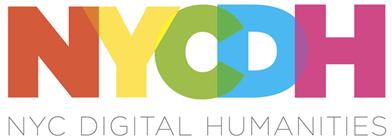Dear all,
Next Wednesday, April 8, at 6:15pm, we welcome Rens Bod at the Heyman Center as part of our #xpmethods encounters “on method in the humanities.” You may know Bod from his book, A New History of the Humanities: The Search for Principles and Patterns from Antiquity to the Present. The event promises to be very lively and topical for humanists of all stripes (abstract below).
The event is free and open to the public. If you’re coming from outside CU, do let me know.
Abstract
How empirical are the humanities? For over a century, empiricism has almost exclusively been attributed to the sciences. The sciences search for patterns and laws, while the humanities aim at understanding unique events. The sciences try to explain the world, while the humanities aim at interpreting it. The sciences aim for objectivity while the humanities are subjective and speculative. These oppositions are much older than C.P. Snow’s well-known two cultures debate; they can be traced back to Antiquity and are – quite surprisingly — rooted in the disciplines that we nowadays call ‘humanities’. From at least the third century BCE onwards, there have been two kinds of practices in philology, historiography, poetics, the study of art and the study of music. On the one hand people searched for patterns and regularities, while on the other hand they searched for interpretations and the exceptional.
Both approaches have not disappeared from the humanities since then. In my talk I will sketch the longue durée of the pattern-seeking tradition in the humanities and compare it to the interpretative tradition. I shall argue that interpretations were not always in opposition to pattern-seeking but were often constructed on the patterns found. The common wisdom that the humanities are moving towards science when they search for patterns is mistaken. Instead, the search for patterns has been a continuous line in the humanities from Antiquity onwards.
Attachments:
You must be
logged in to view attached files.
